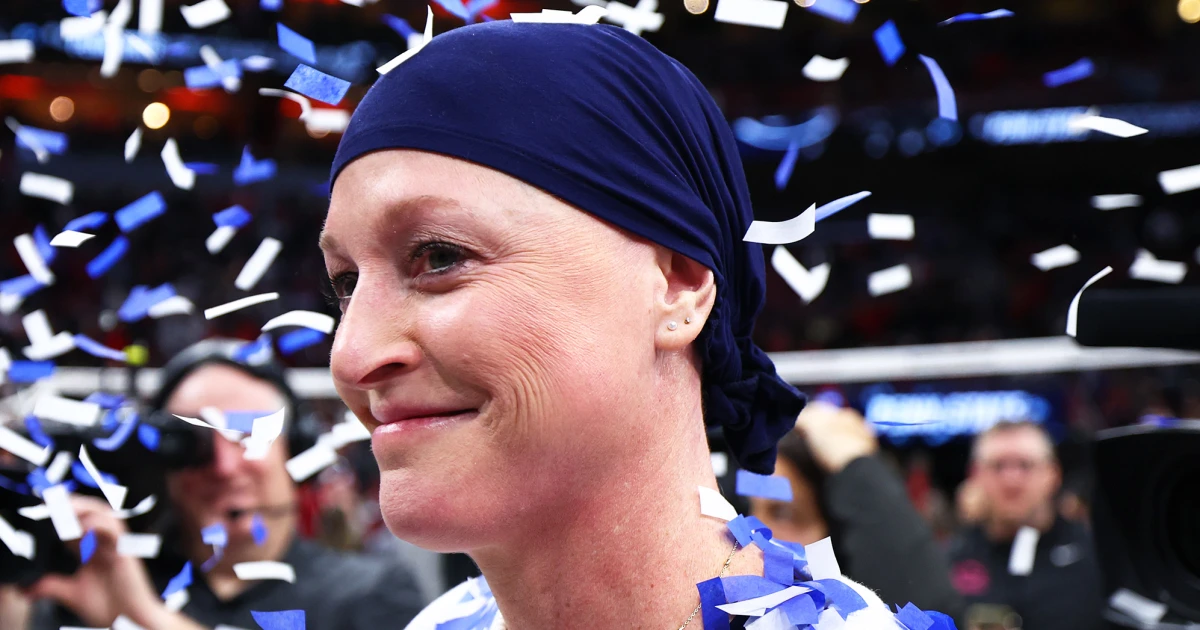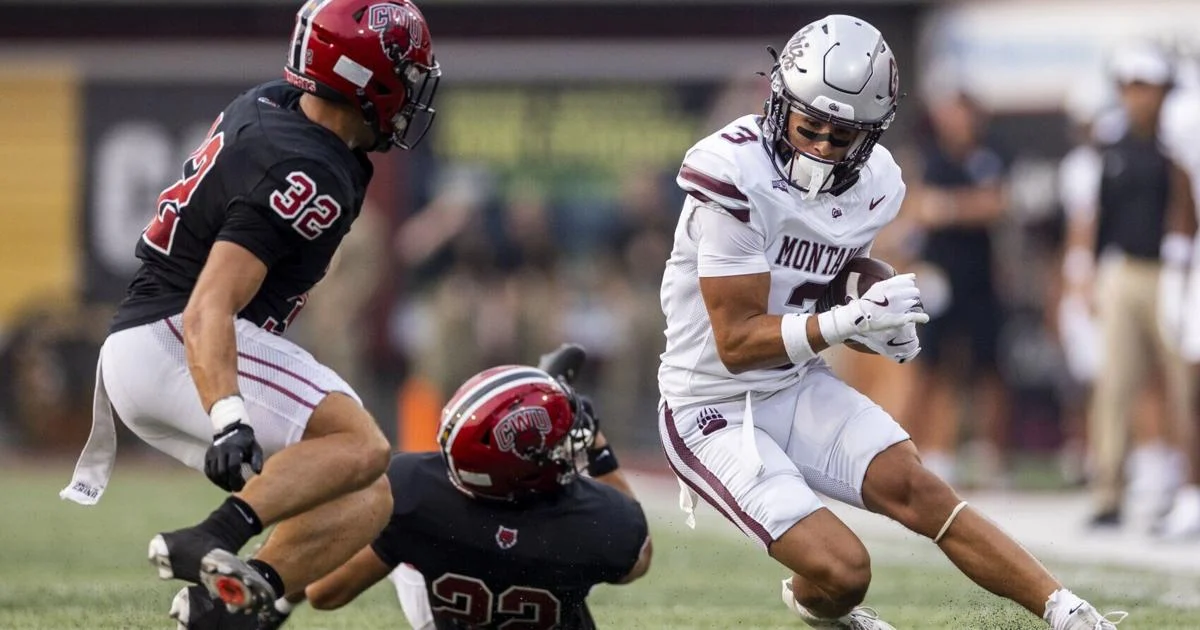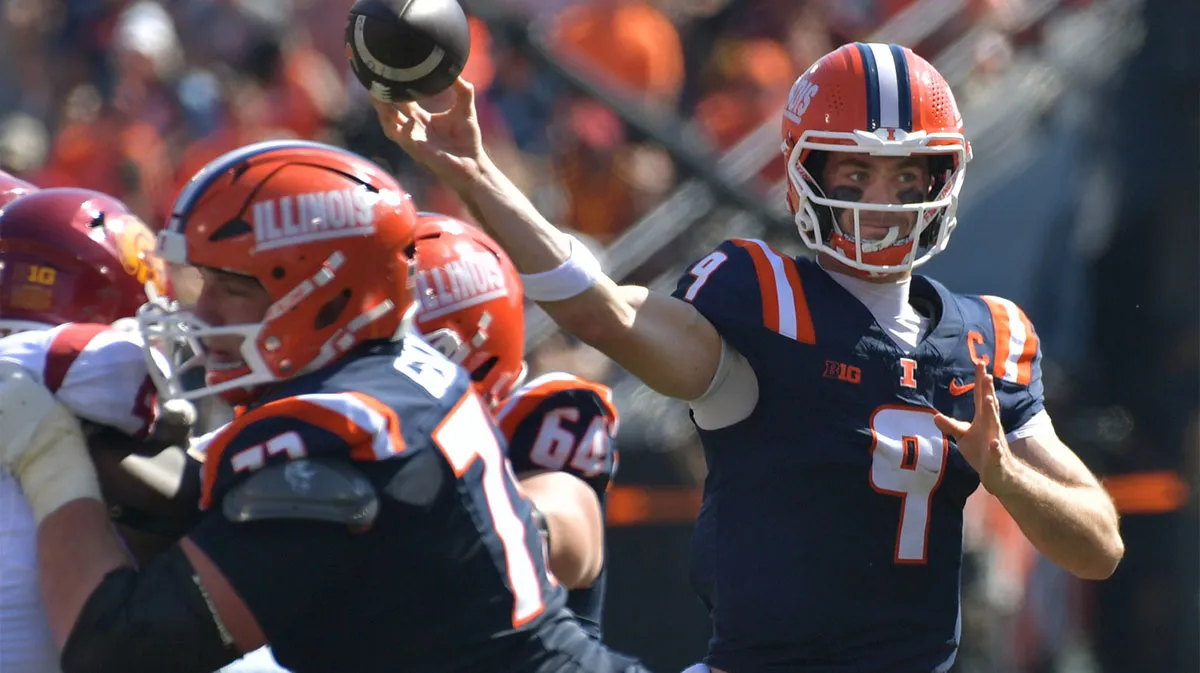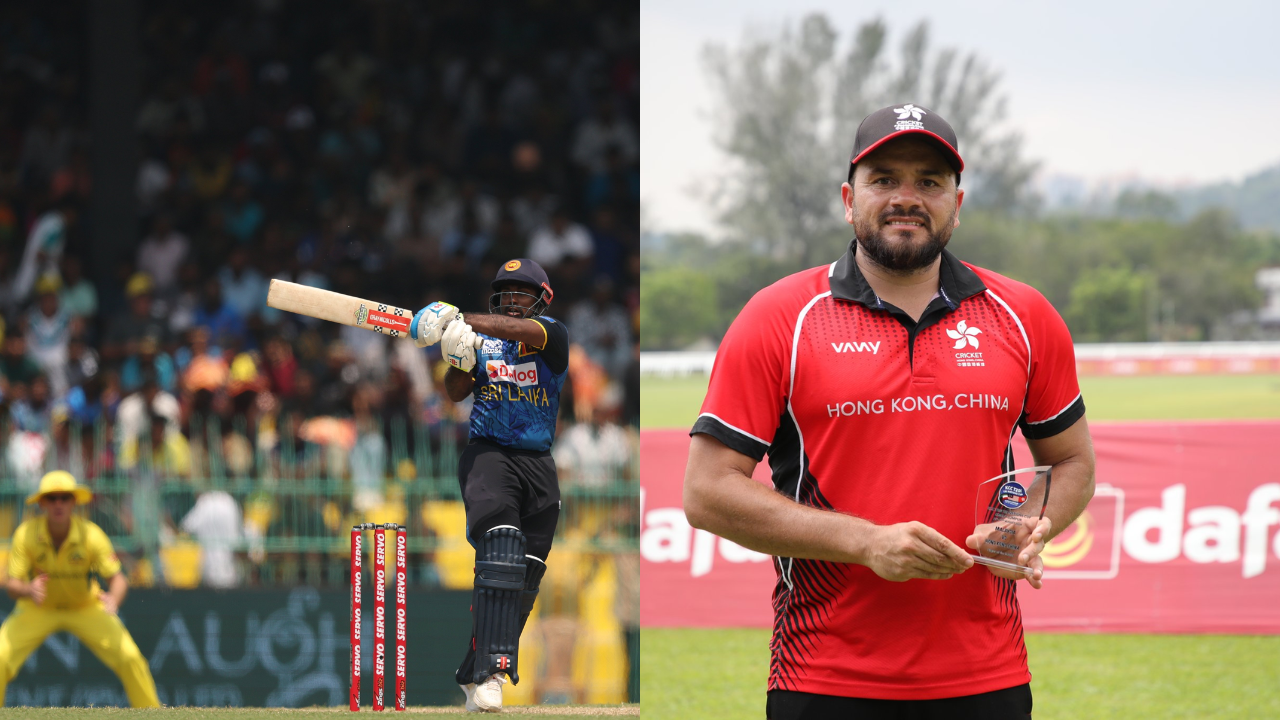
Last September, Katie Schumacher-Cawley found a lump in her armpit. Worried, she visited her doctor. In the parking lot outside her daughter’s high school volleyball match, she received a life-changing phone call.
“I waited outside for a bit and sat in my car and listened to the doctor,” Schumacher-Cawley, 45, head coach of Penn State University’s women’s volleyball team, told TODAY’s Jill Martin. “(My doctor) said, ‘You know you’re triple positive (breast cancer) and there’s a lot of treatments for it. We’re going to get you set up with the best doctors.’”
Schumacher-Cawley was in the middle of coaching the Penn State women’s volleyball season. Despite her Stage 2 cancer diagnosis and undergoing chemotherapy, she continued to coach the team through 14 weeks of practice and 37 matches. She ended the season making history as the first female head volleyball coach to win a Division 1 NCAA championship.
“I just remember I was so, so happy for the team and the university and the program,” Schumacher-Cawley said. “I was so relieved that the season was over because I was so tired.”
A Lump Leads to a Diagnosis
When Schumacher-Cawley was diagnosed with triple-positive breast cancer, she was overwhelmed. She had so many questions about what this meant. Luckily, one of her neighbors is a pediatric oncologist and she called him to help her better understand her diagnosis.
“I was so lost and didn’t know who to call,” Schumacher-Cawley said. “He came down and we had a really long conversation, and then I started researching some different doctors.”
Triple positive breast cancer is a type of breast cancer that tests positive for HER2, estrogen receptors and progesterone receptors, according to the American Cancer Society. Treatment can include hormone therapy and medications that target HER2.
In early October, Schumacher-Cawley underwent surgery to have a port placed that would deliver chemotherapy directly to her bloodstream, and, by mid-October, she began her first of six rounds.
Treatment exhausted her.
“It was one day at a time. There were days that I would come into work real late and right before practice,” she said. “Once I got here, I had a little boost of energy and enjoyed it.”
Schumacher-Cawley is grateful for her staff. They made life easier for her while she grappled with the side effects of chemotherapy.
“I have the most amazing staff and other coaches that were right there, ready to go,” she said. “There were mornings that I was like, ‘I don’t feel like moving. I just don’t feel like putting on any makeup to cover anything, and that was OK. My team and my family saw me at my absolute worst, and so they were OK with that.”
After winning the championship at the end of December, Schumacher-Cawley continued treatment. On March 13, 2025, doctors performed a double mastectomy, and in May, she underwent 15 rounds of radiation. Every three weeks, she has maintenance chemotherapy aimed at preventing her cancer’s recurrence. In January 2026, she’ll undergo reconstructive surgery.
“I’m less tired from this chemo and I won’t lose my hair,” Schumacher-Cawley said.
‘Committed and Dedicated’
Schumacher-Cawley attended Penn State as an undergraduate on a volleyball scholarship. In 1999, she was part of the team that won the national championship.
“I had such a great experience in college and I was able to be great in volleyball, get a great education and enjoy the college atmosphere,” she said. “For me, that’s what I want (my players) to have and (show them) that there’s life after sport. And hopefully, I can help these girls get themselves set up for what it is they want to do in the future.”
Sports have “grounded” Schumacher-Cawley throughout her life, being on the court while receiving treatment allowed her to feel more like herself.
“When I was sick, it was a place that I (could) be relaxed around my players and really be myself and just be able to give what I have to them,” she said. “It’s an atmosphere of growth and love.”
At the start of every season, she “always thinks we’re going to have a really good team.” Last year, when she assessed the team, including the returning seniors, Schumacher-Cawley thought they’d have a “really good chance” at making it to the championship.
“The team was so committed and dedicated,” she said. “Once the season got going, we won a couple of matches. I was like, ‘Hey, it’s anyone’s year,’ and I was so proud of the team for everything they put into it.”
Being able to coach college volleyball players feels like a gift to Schumacher-Cawley.
“It’s so exciting,” she said. “To be a part of all of these young girls’ lives is really special.”



